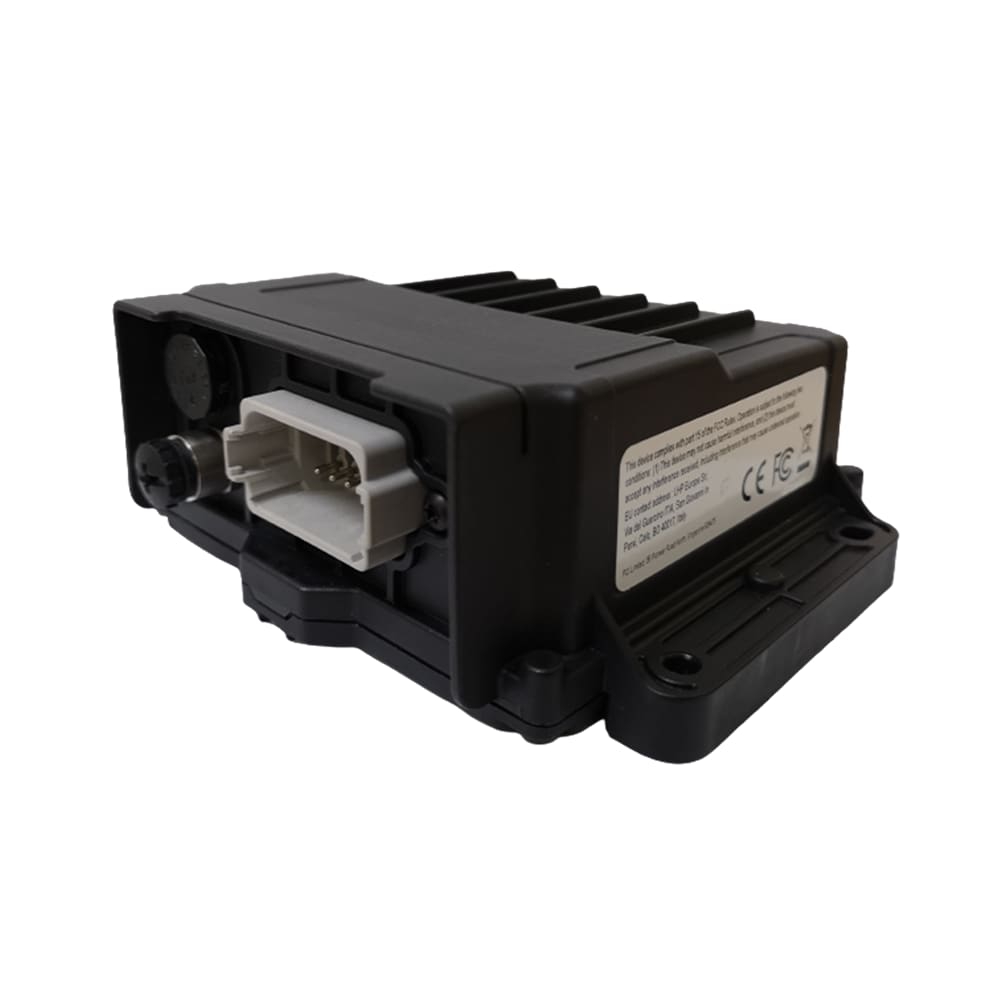Exploring The Potential Of IoT SSH Applications In Modern Technology
In today's rapidly evolving technological landscape, IoT SSH applications have become a cornerstone for secure communication and remote management in various industries. The Internet of Things (IoT) continues to revolutionize how devices interact and exchange data, and Secure Shell (SSH) protocols play a crucial role in ensuring this communication remains secure and reliable. Understanding the capabilities and applications of IoT SSH is essential for businesses and individuals looking to leverage cutting-edge technology effectively.
The integration of SSH within IoT systems offers an unparalleled level of security, protecting sensitive information from unauthorized access and cyber threats. As the number of connected devices continues to grow, the demand for robust security measures has never been higher. IoT SSH applications provide a solution by enabling encrypted communication channels, making it an indispensable tool in the modern digital era.
With the increasing reliance on interconnected devices, exploring the potential of IoT SSH applications is not just beneficial but necessary. This article delves into the intricacies of IoT SSH, its applications, and how it contributes to secure and efficient communication. Whether you're a tech enthusiast or a business owner, understanding IoT SSH will help you stay ahead in the digital race.
Read also:Unveiling The Legacy Of Bmf Big Meech The Rise And Fall Of A Notorious Figure
Table of Contents
- What is IoT SSH?
- Importance of SSH in IoT
- Applications of IoT SSH
- Benefits of IoT SSH
- Security Features of IoT SSH
- Common Uses of IoT SSH
- Challenges in IoT SSH
- Future of IoT SSH
- Best Practices for IoT SSH
- Conclusion
What is IoT SSH?
IoT SSH refers to the integration of Secure Shell (SSH) protocols within Internet of Things (IoT) devices and networks. SSH is a cryptographic network protocol designed to secure data communication, remote command execution, and other network services. In the context of IoT, SSH ensures that devices can communicate securely, even when connected through potentially insecure networks.
SSH operates by creating an encrypted channel between two devices, ensuring that any data transmitted remains private and tamper-proof. This is particularly important in IoT environments where multiple devices exchange sensitive information, such as personal data, health metrics, or financial transactions.
How Does IoT SSH Work?
IoT SSH works by leveraging public-key cryptography to authenticate devices and encrypt data. The process involves:
- Key Generation: Each device generates a unique public-private key pair.
- Authentication: Devices use their public keys to verify each other's identity.
- Encryption: Once authenticated, devices establish an encrypted session for secure communication.
This mechanism ensures that even if a third party intercepts the communication, they cannot decipher the transmitted data without the private key.
Importance of SSH in IoT
As the number of IoT devices grows exponentially, the need for robust security measures becomes increasingly critical. IoT SSH plays a vital role in addressing the security challenges associated with interconnected devices. By providing a secure communication channel, SSH helps mitigate risks such as data breaches, unauthorized access, and cyberattacks.
Moreover, SSH ensures compliance with industry standards and regulations, such as GDPR and HIPAA, which mandate the protection of sensitive information. For businesses, implementing IoT SSH can enhance their reputation, build customer trust, and reduce the likelihood of costly security incidents.
Read also:Vena Skye The Rising Star In The World Of Entertainment
Why Is SSH Essential for IoT?
SSH is essential for IoT because:
- It provides end-to-end encryption, ensuring data privacy.
- It authenticates devices, preventing unauthorized access.
- It supports secure remote management, enabling efficient device maintenance.
These features make SSH an indispensable tool for securing IoT ecosystems.
Applications of IoT SSH
IoT SSH applications span across various industries, offering solutions for secure communication and remote management. Some of the most prominent applications include:
1. Smart Home Systems
In smart home environments, IoT SSH ensures that devices such as smart thermostats, security cameras, and lighting systems communicate securely. This enhances the safety and privacy of homeowners while allowing them to control their devices remotely.
2. Industrial IoT
In industrial settings, IoT SSH is used to secure communication between machines and sensors, enabling real-time monitoring and control. This is particularly important in manufacturing, where even minor security breaches can lead to significant operational disruptions.
3. Healthcare
In healthcare, IoT SSH protects sensitive patient data transmitted between medical devices and servers. This ensures compliance with healthcare regulations and safeguards patient privacy.
Benefits of IoT SSH
Implementing IoT SSH offers numerous benefits, including:
- Enhanced Security: SSH provides robust encryption and authentication mechanisms, ensuring secure communication.
- Scalability: IoT SSH can be deployed across large networks, supporting thousands of devices without compromising security.
- Remote Management: SSH enables secure remote access, allowing administrators to manage devices from anywhere.
- Compliance: By adhering to industry standards, IoT SSH helps organizations meet regulatory requirements.
These benefits make IoT SSH an attractive solution for businesses looking to enhance their security posture.
Security Features of IoT SSH
IoT SSH incorporates several security features that make it a reliable choice for securing IoT networks. These features include:
- Encryption: SSH uses advanced encryption algorithms to protect data in transit.
- Authentication: SSH employs public-key cryptography to verify device identities.
- Integrity: SSH ensures data integrity by detecting and preventing tampering during transmission.
These features collectively contribute to a secure and resilient IoT ecosystem.
Common Uses of IoT SSH
IoT SSH is commonly used in scenarios where secure communication and remote management are critical. Some of the most common uses include:
1. Remote Device Management
IoT SSH enables administrators to manage devices remotely, allowing them to perform tasks such as software updates, configuration changes, and troubleshooting.
2. Data Transfer
SSH facilitates secure data transfer between IoT devices and servers, ensuring that sensitive information remains protected.
3. Network Monitoring
IoT SSH allows for real-time monitoring of network activity, helping administrators identify and respond to potential security threats.
Challenges in IoT SSH
Despite its numerous advantages, IoT SSH is not without its challenges. Some of the most significant challenges include:
- Complexity: Implementing SSH in IoT environments can be complex, requiring specialized knowledge and expertise.
- Resource Constraints: Many IoT devices have limited processing power and memory, making it challenging to implement resource-intensive security protocols.
- Interoperability: Ensuring compatibility between different devices and platforms can be a challenge, particularly in heterogeneous IoT networks.
Addressing these challenges requires a comprehensive approach that balances security with usability and performance.
Future of IoT SSH
The future of IoT SSH looks promising, with advancements in technology and increasing adoption across various industries. As more devices become connected, the demand for secure communication protocols like SSH will continue to grow.
Innovations in quantum cryptography and machine learning are expected to enhance the capabilities of IoT SSH, making it even more secure and efficient. Additionally, the development of lightweight SSH implementations tailored for resource-constrained devices will help overcome some of the current limitations.
Best Practices for IoT SSH
To maximize the benefits of IoT SSH, organizations should adhere to best practices such as:
- Regularly updating SSH keys and certificates to maintain security.
- Implementing strong password policies and multi-factor authentication for added protection.
- Monitoring network activity to detect and respond to potential security threats.
By following these best practices, organizations can ensure that their IoT SSH implementations remain secure and effective.
Conclusion
In conclusion, IoT SSH applications play a crucial role in securing communication and enabling remote management in IoT environments. By providing robust encryption, authentication, and integrity features, SSH ensures that sensitive data remains protected from unauthorized access and cyber threats.
As the number of connected devices continues to grow, the importance of IoT SSH will only increase. Organizations that embrace this technology and adhere to best practices will be better positioned to leverage the full potential of IoT while maintaining a strong security posture.
We invite you to share your thoughts and experiences with IoT SSH in the comments below. Additionally, feel free to explore other articles on our site for more insights into cutting-edge technology and security solutions.
Article Recommendations


